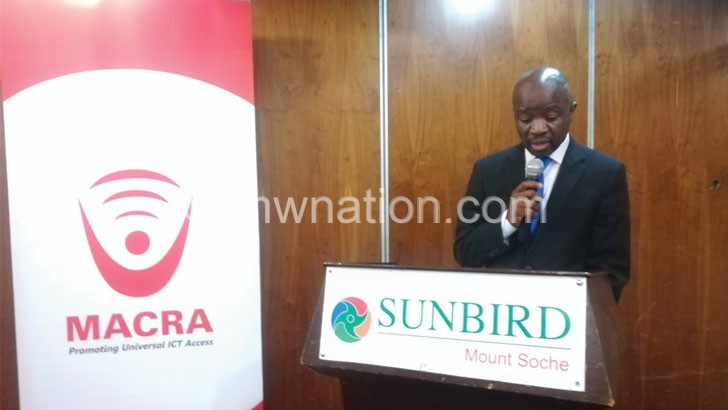Macra in spectrum audit
The Malawi Communication Regulatory Authority (Macra) will from Monday next week, embark on a spectrum and frequency audit and re-farming of the country’s Frequency Modulation (FM) band to manage interference and frequency congestion.
Speaking at a stakeholders’ meeting on the project in Blantyre, Macra director general Godfrey Itaye highlighted that the re-farming exercise will help the regulator to determine illegal use of spectrum, build database and enable growth of services in broadcasting.

Macra suspended issuing of broadcasting licenses in July 2018 due to saturation of the FM band.
“Among the major challenges facing spectrum management in Malawi is the absence of accurate database for the specific bands. It is therefore difficult to manage interference and determine illegal usage of spectrum. While this audit will assist in building the database, the re-farming exercise will also help to reorganize the FM band based on the realities on the ground,” said Itaye.
He said the Audit and Re-farming exercise is also expected to help the broadcasting industry in collecting data on current assignments in the FM band, collecting data on actual occupancy of the FM band and obtaining data on FM transmitters in Malawi and on planned channels in the border areas of the country for coordination purposes as per international Telecommunications Union (ITU) requirements.
Itaye further said the exercise will help in ushering a new era of efficiency in the allocation and usage of the country’s FM band, make more channels available and accommodate more users.
After the exercise, Macra is expected to give a report to esteemed broadcasters.
Since the enactment of the old Communications Act in 1998, Malawi has witnessed enormous growth in broadcasting sector with over 80 licensed broadcasters.
“The FM band which ranges from 87.5 to 108 MegaHertZ has become so congested that additional users may not be accommodated. This has been a result of increased demand for channels for both existing and new licenses in the broadcasting industry resulting in a need for more efficient planning and utilization of the FM band,” he said.
Davood Molkdar, Managing director for Castel limited a consultant for the project said his firm plans to finish the whole exercise in three months’ time depending on availability of data from broadcasters.
“Our prime consideration is to reduce the amount of interference while maintaining coverage as well as providing as many channels as possible and free up more channels as possible for more licenses to be awarded to applicants,” said Molkdar.
He called on broadcasters to stick to what is recommended in their licences as one way of dealing with the challenge of frequency interference.






